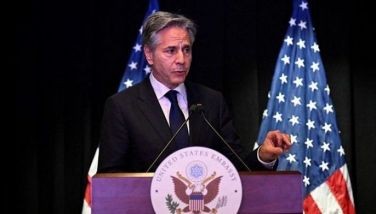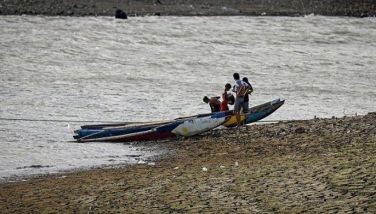Lawmakers hit Comelec proposal to extend campaign period
MANILA, Philippines - Lawmakers criticized yesterday the proposal of the Commission on Elections (Comelec) to extend the campaign period for the May 2016 elections from the current 90 days to 120.
“In the first place, the clamor is not to lengthen it, but to shorten it. A campaign should be a short race, not the political equivalent of a triathlon. Longer campaign translates into a costlier campaign,” said Senate President Pro-Tempore Ralph Recto, a re-electionist senator.
Acting Minority Leader Vicente Sotto III, also a re-electionist senator, said the move would entail more expenses for national and local candidates.
Only those who have a bigger campaign fund would benefit from the extension of the campaign, Sotto said.
Under the election laws, Sotto noted that every candidate is allowed to spend only P3 per voter. At 50 million voters, the senator said this would translate to P150 million needed by a candidate to launch a nationwide campaign.
Recto said the Comelec should re-study their proposal since it might heighten tensions among warring factions due to prolonged campaigning.
Also, it might affect the implementation of public works projects, which is covered by an election ban.
“The longer the campaign, the longer an incumbent is distracted from doing his duties. A longer campaign heightens tension, raises the political temperature that could reach violent boiling point. A longer campaign prolongs the public works ban, thereby delaying the completion of needed infrastructure,” Recto added.
Sen. Francis Escudero also slammed the Comelec’s move, adding he is not one with the agency’s reaction in a bid to lick the problem of early campaigning.
“If they will not change the limit in the campaign spending, then the candidates should work on the limit, especially if it’s within the law,” Escudero said.
“There should be a reason why they are doing this, not just because they are having a hard time in preventing early campaigning,” he said.
Senate President Franklin Drilon said he is still going to study the basis of the Comelec’s proposal to extend the campaign period.
Sotto also urged the Comelec to review the Supreme Court ruling that allowed a candidate to spend 120 minutes airtime for campaign advertisements for each television and radio station during the campaign period.
Sotto said this is even contrary to the idea of lawmakers that the 120 minutes airtime should be covering a candidate, not the bet’s airtime allocation per broadcast station.
“So per station is P120 million and allowed by the SC. So for two TV stations – say, Channel 7 and Channel 2 – that is already P240 million. What about your other expenses? That is now beyond what is allowed for a candidate,” Sotto said.
House members also questioned yesterday the Comelec plan to extend the campaign period.
Valenzuela City Rep. Sherwin Gatchalian said a longer campaign period would be favorable to national candidates since it would be impossible for those running for president, vice president and senator to go around the entire country in only three months or 90 days as provided under the Omnibus Election Code.
He, however, pointed out that the long campaign period will be counter-productive for local officials, especially governors and mayors, since this would mean that local officials would not be able to function for four months as they would be busy campaigning for re-election.
“The Comelec should consider the difference in the nature of work between national and local officials. Mayors are one of the busiest local executives and giving them 120 days to campaign will be detrimental to his constituents,” he said.
Leyte Rep. Ferdinand Martin Romualdez, head of the House independent bloc, asked the Comelec to give the details of its justification so that it can be studied very well.
“This is good so that people will have more time to know the candidates better. But we have to be very careful here because if a law was the basis of the 90-day campaign, only Congress can amend this to make it 120 days,” Romualdez said.
Deputy Speaker and Isabela Rep. Giorgidi Aggabao said the Comelec could not legislate under the Constitution.
“They (Comelec) would also be intruding into policy-crafting that also belongs to Congress. To be sure, there are many pre-election activities that Comelec has the flexibility to regulate, but I doubt if that includes altering the campaign period which the law has specifically fixed,” Aggabao said.
Comelec lacks authority
Election lawyer Romulo Macalintal said yesterday that the Comelec has no authority to extend the campaign period that was already fixed by Republic Act 7166 or the synchronization of elections law of 1997.
In a statement, Macalintal noted that the Comelec might find some gaps in the law but it cannot supply such gaps because its functions are not legislative.
“Only Congress can amend the law. Comelec may extend the election period for some pre-election acts, like voters’ registration, but not the campaign periods as upheld by the Supreme Court in Kabataan party-list vs. Comelec in Dec 12, 2009 (decision),” he added.
Macalintal maintained that if the campaign period is extended there would be a need to also increase the allowable expenses for candidates and political parties. – With Paolo Romero, Sheila Crisostomo
- Latest
- Trending





























